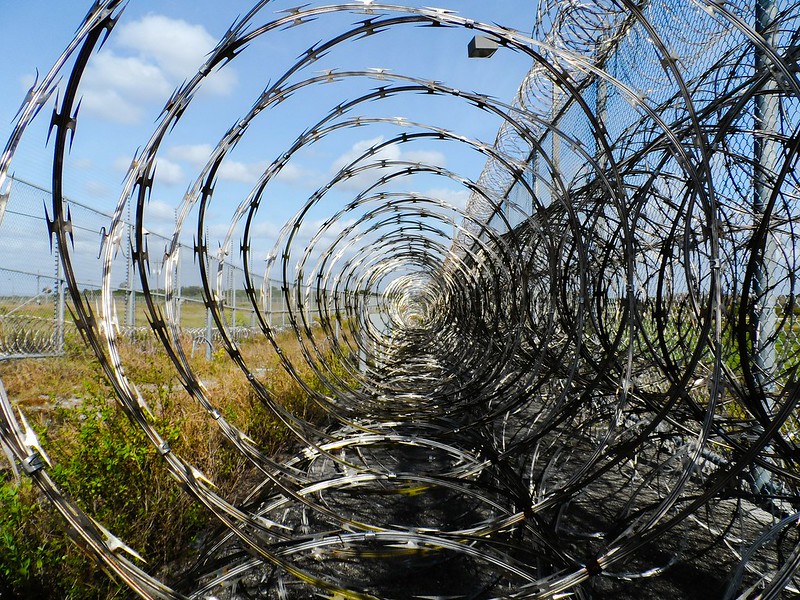The life-without-parole sentence is barbaric. Decarceration activists call it “death by incarceration.” Pope Francis denounced it as “a hidden death penalty” when demanding its abolition.
Perhaps most of us can imagine extremely rare cases when public safety requires that someone be separated from society long-term, such as a person who commits a string of horribly violent crimes, is released, then promptly does the same again. Yet only one country, the United States, seems to give these sentences out so casually.
Here, over 50,000 people are currently serving a natural life sentence. That exceeds the number of all prisoners in the six states of New England. It’s more than the entire incarcerated population of Canada, or Chile or Cambodia. While natural life sentences exist in many other nations, they are seldom used and usually provide for some form of early release.
At its 2022 annual meeting this month, the American Bar Association joined the American Law Institute (ALI) in calling for the abolition of natural life sentences. For its part, the ABA now officially recommends “federal, state, local, territorial, and tribal governments to enact legislation permitting courts to hear petitions that allow de novo hearings to take a ‘second look’ at criminal sentences where individuals have been incarcerated for ten years.”
Leaving this to parole boards would be inadequate, as both the ABA and the ALI recognize.
If various governments embraced this recommendation, life with the possibility of parole would effectively replace the natural life sentence as the harshest non-capital punishment in the nation.
Leaving this to parole boards would be inadequate, as both the ABA and the ALI recognize. The ABA report accompanying its new resolution does not mince words, pointing out that “parole boards are risk averse and reluctant to release people incarcerated for violent crime out of concerns about reappointment or of being vilified in the local press.” It also believes that political concerns make the boards ineffectual.
The ABA is likewise skeptical of clemency as a structural solution to overly harsh sentencing. In a word, the issue is “politics.” Beyond cherry-picking a few famous prisoners whom a huge mass of people believe are wronged, there is zero incentive for a governor (or president) to free people from inhumane sentences, whereas electoral prospects could easily be damaged by media coverage of further crimes following such a move.
Instead, both legal groups point to “second look” hearings, in a process that would be governed by judges, as a pathway to undoing some of the damage.
Both groups are part of the backbone of elite legal circles in the US, so it is unsurprising that they see courts and judges as the solution. However, an issue with their proposals is the fact that judges, too, are not apolitical. In a large number of states, judges are elected officials. It is hard to imagine that these judges will be less risk averse due to politics than parole board members, when not a single state has a system of electing people to the parole board.
Unfortunately, many of the states with the most prisoners serving life-without-parole sentences are ones that elect their judges.
The “second look” concept would hold most promise where the judges tasked with deciding on the petitions were trial-level judges who are not elected, including judges in the federal system. The federal system is not populist—in the sense that although presidents appoint judges, they appoint them for life, and presidential elections are too broad to be heavily impacted by popular disdain for individual appointed judges below the Supreme Court level. If someone dislikes a criminal sentence at the federal level, the federal government’s response is “tough shit,” so long as there is not some narrow legalistic route for challenge. Prosecutors in the federal system can also be very harsh and hyper-loyal to their side of litigation in cases, but they too are relatively insulated from political or populist concerns, since they are not elected.
Unfortunately, many of the states with the most prisoners serving life-without-parole sentences are ones that elect their judges. Roughly 20 percent such sentences are being served in Louisiana and Pennsylvania alone, despite those states constituting only about 5.3 percent of the US population. Both of those states not only elect judges, but do so on an explicitly partisan basis. It is hard to imagine second-look taking off in either state. Even in Philadelphia, which is broadly seen as a pioneer of progressive criminal justice reform, elected judges are actually some of the biggest agents of thwarting change.
While obstacles abound, it is at least good that the need for change is being recognized by major legal organizations. If they’re serious about achieving this, they will need to follow up by devoting great energy to their strategies and advocacy.
Photograph by Jobs for Felons Hub via Flickr/Creative Commons 2.0





Show Comments